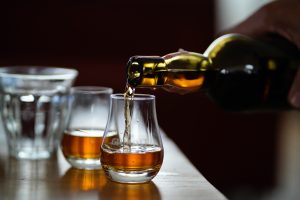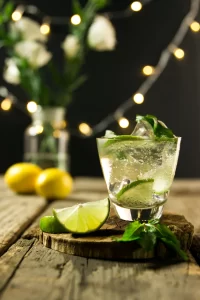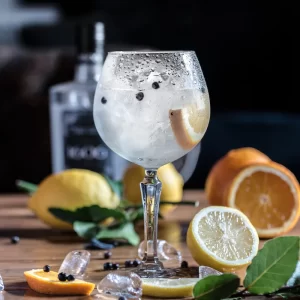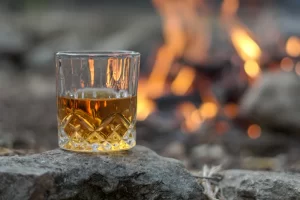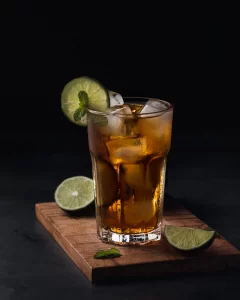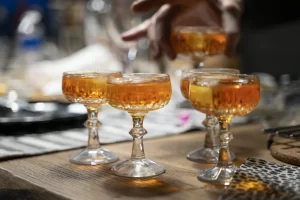Idaho Liquor Laws And Regulations
All liquor sales and alcohol restrictions in Idaho State are controlled by the Idaho State Police Alcohol Beverage Control Bureau (ABC).
This includes all licenses to distill and produce alcohol, as well as permission to sell. Idaho does not have heavily restricted regulations regarding the creation and distribution of liquor, but there are still important laws to follow.
Idaho state also has close control over the sales of any alcohol above 16% ABV. This includes any liquors produced in a distillery.
If you wish to own and operate a distillery in Idaho, you must work closely with the Idaho State Liquor Division (ISLD) to ensure the proper permits for the operation, as well as to facilitate the sales of any liquors produced.
In this guide, we’ll explore the alcohol laws and regulations in the state of Idaho, including the laws specific to distilleries.
Idaho Alcohol Sales Restrictions
Idaho restricts the hours at which alcohol can be sold. Alcohol can only be sold in Idaho between the hours of 6 am and 1 am, Monday to Saturday. However, local laws allow cities to permit the sale of alcohol up until 2 am for licensed establishments.
Idaho State restricts the sale of alcohol on Sundays, but localities can permit the sale of beer and liquor on Sundays. Alcohol sales are also outlawed on Memorial Day, Thanksgiving, and Christmas Day.
Local counties can permit the sale of alcohol on Memorial Day and Thanksgiving, but it must remain outlawed on Christmas Day. Idaho does allow for alcohol to be sold on election days.
Liquor Stores And Taprooms In Idaho
Liquor stores in Idaho are all run by the state. They can operate from Monday through Saturday, selling beer, wine, and liquor. The opening hours are restricted to between 7 am and 1 am, but most stores operate shorter hours.
All alcohol sold in an Idaho liquor store is for consumption off-premises.
Licensed breweries and taprooms can both operate in Idaho. They are permitted to sell beer and wine, which can be consumed both on and off the premises. These establishments can open from 6 am to 1 am, with some local counties allowing them to open until 2 am.
Most breweries and taprooms will have shorter operation hours than this. Alcohol can be sold in bottles and cans, as well as growlers.
Restrictions On Buying Alcohol In Idaho

It’s illegal for anyone under the age of 21 to buy alcohol, or try to buy alcohol, in the state of Idaho. Selling alcohol to a person under the age of 21 can result in a $1,000 fine and a license suspension.
Further offenses will result in increased fines, longer license suspensions, and potentially even jail time.
Idaho is relatively strict regarding consumption age. There are no clear exceptions for medical or religious reasons. A minor can possess beer in a private residence with parental permission, but the law is unclear regarding consumption.
Distilleries can only offer free samples to customers over the age of 21.
Idaho Distillery State Fees
When applying for a Distillery License, Idaho State requires a surety bond of $1,000. This must be given alongside your license application. If you pass the licensing checks and the facility checks, you will need to provide a $100 licensing fee.
In Idaho, the government controls the sale of distilled spirits. Any revenue generated from these sales is therefore controlled by the government as well.
If you intend to sell your liquor on the premises, you must apply for a separate license, and you must comply with the ISLD pricing guidelines.
Idaho Distillery Licensing Requirements
Idaho operates as a control state. And alcohol above 16% ABV is controlled by the Idaho State Liquor Division. Anything under 16% ABV, such as beers and weaker wines, are under less strict controls.
Idaho only offers licenses on a limited basis — there can only be 1 license per every 1500 people in a city. This can lead to long wait times to qualify for a license.
To distill liquor in Idaho, you will need to apply for both federal and state licenses. The federal licenses are the TTB 5100.24 Basic permit, and the TTB 5110.41 Distilled spirit plant license, which is required for owning distilling equipment.
The Idaho State Liquor Division issues a Manufacturer’s/Distiller’s License to those who want to produce commercial quantities of liquor or spirits.
This license will permit the distillation of these spirits, as well as the ability to sell those spirits to the Idaho State Liquor Division, which controls commercial sales.
To apply for an Idaho Distiller’s License, you must first receive a federal license. Further, your business must be registered with Idaho’s Secretary of State. You may be required to complete a Criminal Background Check (although this isn’t always necessary).
The next step is the surety bond. Idaho requires a $1000 surety bond to be submitted with the application for a distiller’s license.
You are now ready to apply for your Distillery License! Having received your application, the Idaho State Liquor Division will authorize a facilities inspection. If you pass the inspection, you will need to provide a $100 licensing fee, and you will be issued your license.
If you wish to sell or distribute packaged liquor from the distillery, you will need further licensing. This includes setting up an Idaho Resident Representative. To sell liquor on the premises, you will also need to apply for ISLD Special Distributorship.
Idaho Distillery Restrictions
To receive a Distillery License in Idaho requires following a relatively strict procedure. You must have received a DSP permit from the federal government before applying for a state license.
You will also need a TTB Distilled Spirits Permit, a TTB Transfer in Bond Permit, and TTB Industry Member Information.
Having applied for a license, you must undergo an inspection of the facility. This will include checking the products produced, the source of the raw materials, and the storage of both raw materials and finished liquor.
You can find a full list of the items on the checklist on the Idaho state website.
There are further regulations if you wish to sell bottles on the premises of the distillery. There must be a separate room established with a separate outside entrance. You must also apply for a Special Distributorship. However, you can offer sample tastings (to those over 21).
Conclusion
Idaho State Liquor Division has close control over the running of distilleries in the state of Idaho, as well as the distribution of liquor over 16% ABV.
While the licensing requirements are not unusually strict, it’s essential to apply for the correct permits before owning and operating a distillery in Idaho.
